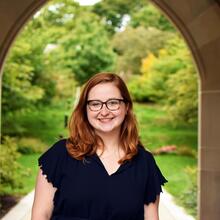A Reflection for Friday of the Fourth Week in Ordinary Time
Find today’s readings here.
King Herod heard about Jesus, for his fame had become widespread,
and people were saying,
"John the Baptist has been raised from the dead;
That is why mighty powers are at work in him." (Mk 6:14)
The beheading of John the Baptist has inspired lots of artistic interpretations. When we read Mark’s telling in today’s Gospel, we can see why; it has all the elements of a great story.
It’s told as a retrospective in Mark: Herod Antipas’ mind almost flashes back when he hears John’s name, thinking back to the scene in which he and his wife and daughter became responsible for the death of John the Baptist. John had told Herod that his marriage was unlawful because his wife had previously been married to his brother. But Herod keeps John around after that; he sees something in him. It’s his wife, Herodias, who really takes John’s comment about their marriage to heart. Mark says she “harbored a grudge against him and wanted to kill him but was unable to do so.”
When Herod is hosting his birthday party, his and Herodias’ daughter entertains the guests with a dance. After she performs well, Herod vows to reward her with whatever she wants, “even… half of my kingdom.” It’s her mother, Herodias, who encourages her to ask for John’s head on a platter. The executioner comes for John, and the head is brought back into the party for all to see.
The scene is truly like great literature, and as I read it I see Caravaggio’s painting in my mind’s eye—and there are many other notable paintings that also depict John’s brutal death. The story has inspired opera and theatre; a tragic end for Herod’s daughter was even dramatized in a play by Oscar Wilde.
But today’s Gospel passage offers us something that can easily get lost in the scene’s drama. Its framing asks: What does John have to tell us about Jesus?
Before the flashback to John starts, Herod thinks of John in the first place because Jesus’ name is in the air. Jesus’ deeds have developed him a reputation, and everyone wants to know who he is: Is he a prophet? Elijah? Or is he in fact John the Baptist, back from the dead?
John and Jesus are, of course, not the same person, but their connection is meaningful, and John’s death at the hands of powerful rulers in some ways foreshadows what is to come for Jesus.
We all have people in our lives without whom we wouldn’t be the same. They are essential parts of our stories, and we are essential parts of theirs. These people are often family members or close friends, memorable role models or mentors. Even if someone hasn’t met us, meeting these special people will tell them something about us.
The connection between John and Jesus is divinely inspired, but it’s also human. John has something to teach us about Jesus precisely because he is his cousin, his friend, his spiritual forerunner. It’s beautiful to look at relationships in this way, to wonder what someone can teach us about the people he’s close to—both in the Gospels and in our real lives.








